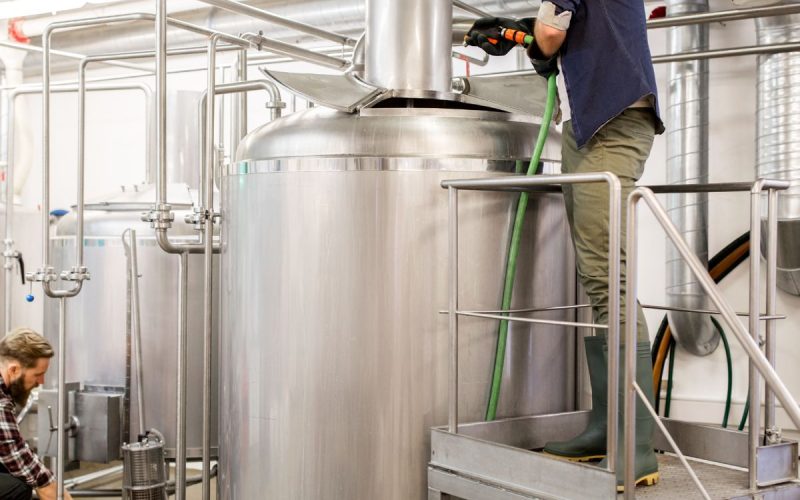In the intricate world of brewing, consistency is not just a desirable quality—it’s an absolute necessity. Breweries large and small strive to create beers that taste the same every time they’re poured into a glass, regardless of where or when that pour happens. This meticulous pursuit of uniformity is no accident; it’s the result of rigorous processes, stringent quality control measures, and a deep understanding of the science of brewing. Learning how breweries ensure consistent products will help you foster a deeper appreciation for your favorite beers.
Quality Control Measures in Breweries
Breweries implement various quality control measures to ensure the consistency of their products. These measures include regular testing of raw materials, rigorous monitoring of the brewing process, and meticulous inspection of the final product. Laboratories within breweries perform tests on the beer at different stages of production to check for factors such as pH levels, alcohol content, and bacterial contamination. They also employ filtration processes to ensure consistency and quality. Any deviation from the set standards triggers immediate corrective actions, ensuring only consistent, high-quality beer reaches consumers.
The Role of Ingredients in Ensuring Consistency
Whereas cocktails aren’t always guaranteed to taste the same—even a classic old-fashioned may taste slightly different from bar to bar—beer needs to remain consistent in flavor across the board. Ingredients play a crucial role in maintaining this consistency. Breweries source their ingredients—malt, hops, yeast, and water—with great care, often sticking with the same suppliers to ensure a consistent taste profile. The malt and hops contribute to the beer’s flavor and aroma, while the yeast determines the beer’s alcohol content and carbonation. Water, which makes up a majority of the beer’s composition, influences the final product’s overall taste. By controlling the quality and proportions of these ingredients, breweries can achieve a consistent product batch after batch.
Advanced Brewing Techniques for Uniform Taste
Breweries employ advanced brewing techniques to produce multiple batches of beer with a uniform taste. These techniques involve precision temperature control during fermentation, careful management of yeast propagation, and the use of state-of-the-art brewing equipment. Breweries also utilize software solutions for real-time monitoring and control of the brewing process. These technological advancements allow for greater precision and consistency in brewing, resulting in a uniform taste across all batches.
The Impact of Storage and Distribution on Beer Consistency
How a beer is stored and distributed significantly impacts its consistency. Exposure to light, heat, and oxygen can alter a beer’s taste, color, and carbonation levels. Therefore, one final way that breweries ensure consistent products is by investing in dark, temperature-controlled storage facilities and using packaging that protects the beer from light and oxygen exposure. Additionally, they work closely with distributors to ensure the beer is transported under optimal conditions. By managing these aspects, breweries can ensure their beer maintains its quality and consistency as it is transported from the brewery to the consumer’s glass.

